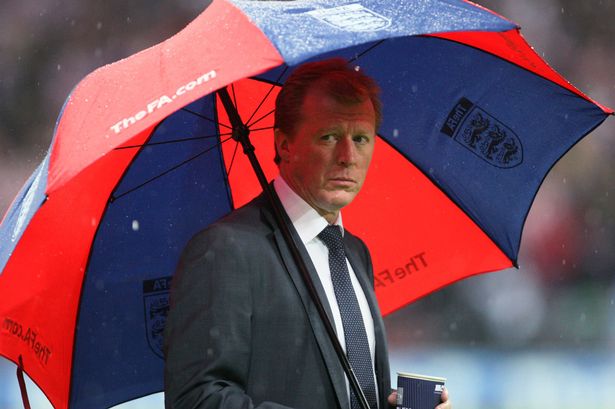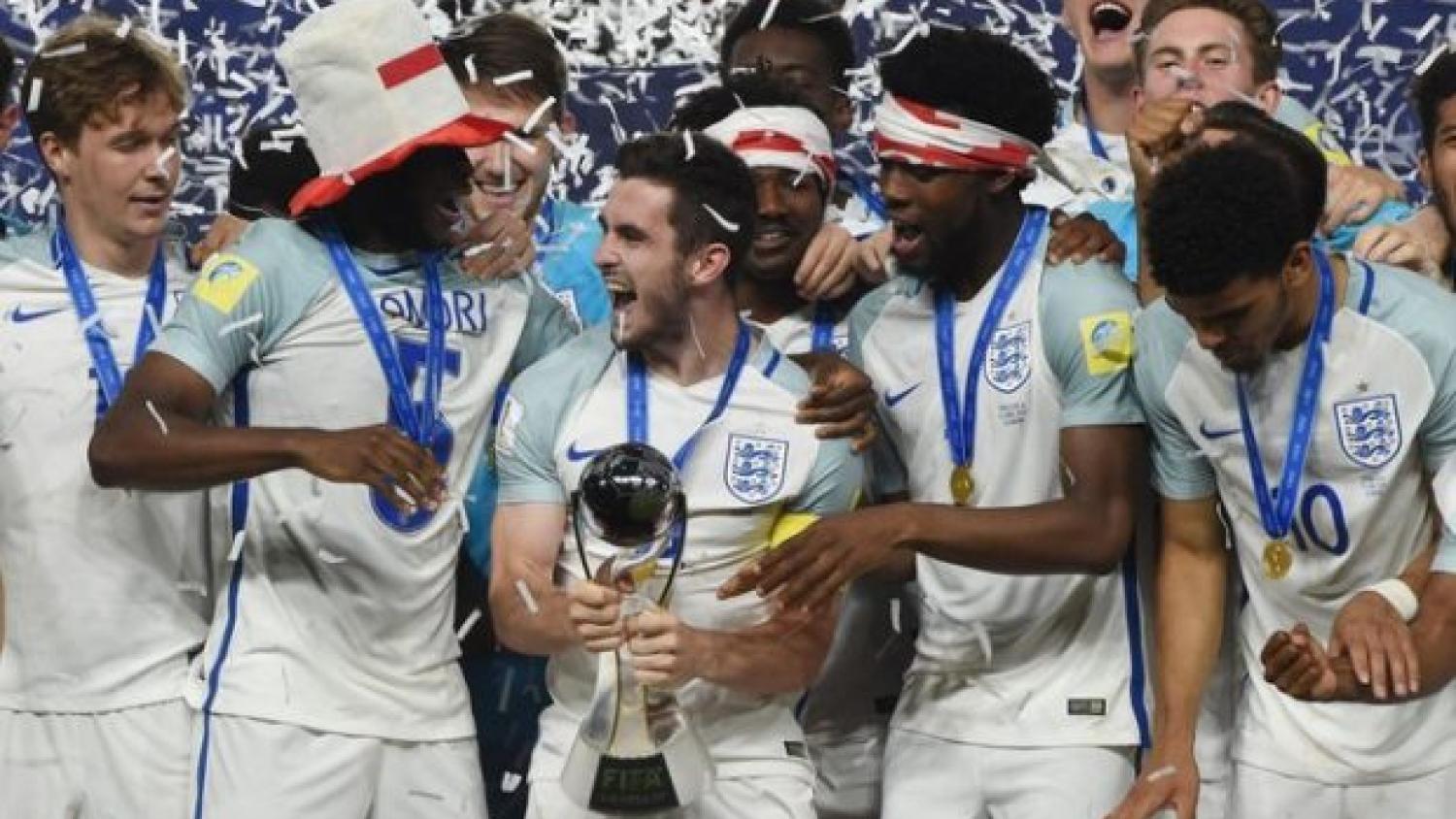On Sunday, England won the 2017 FIFA U-20 World Cup, sparking snarky Brits to declare the nation had finally ended its 51-year cycle of hurt, dating back to last winning the World Cup in 1966.
Despite being home to arguably the world’s most entertaining league, England has consistently failed to flatter at the international level. A stellar crop of English players (including David Beckham, Frank Lampard and Michael Owen) in the 2000s were dubbed the Golden Generation. Their play at the highest level didn’t exactly live up to the lofty moniker.
After an unexpected run to the 2017 U-20 World Cup title, there’s a new golden crop of youngsters for English fans to get their hopes up over.
Can they possibly do any worse than the last Golden Generation?
The over-hyped teams of the 2000s, with players who were superbly successful at club level, were supposed to bring England back to the top of the world’s game but never made it past the quarterfinals of any World Cup or European Championship. Embarrassingly, England didn’t even qualify for the 2008 Euros.

Steve McClaren failed to lead England to EURO 2008. Photo: @GavinHuet | Twitter
But this current group — we’ll call them the Silver Generation because they at least have won some hardware — will now be held up to standards just as high as the Golden Generation after winning the U-20 World Cup for the first time in England’s history.
Players like Golden Ball winner Dominic Solanke (Chelsea), Golden Glove winner Freddie Woodman (Newcastle United) and final goalscorer Dominic Calvert-Lewin (Everton) will join a legion of young English talent who already have the Three Lions atop Group F in World Cup qualifying.
Here's that Freddie woodman penalty save again. And the only goal in the game scored bye Dominic Calvert-Lewin pic.twitter.com/AH54yjlJPY
— Rude Boy 1969 (@Skad4life69) June 11, 2017
Dele Alli, Harry Kane, Raheem Sterling, Eric Dier, Alex Oxlade-Chamberlain, John Stones and Marcus Rashford are 23 or younger and already established senior-level internationals.
What is the ceiling for this team?
If England’s history is any sort of precedent, about as tall as the 5'6'' Raheem Sterling.
Despite inventing the damn game, England has not had much success outside the British Isles. After sticking its nose up at the first three World Cups, it took five attempts for the Three Lions to win their only title, and even then they needed the aid of being host and a controversial, extra-time goal to beat West Germany in the final.
Controversial but I have never thought this was a goal...#england #WorldCup #Germany #Wembley #1966 #fa #englandfootball #uefa #fifa pic.twitter.com/r0M0wVpBRH
— Greg Darkes (@gregdarkes) May 2, 2017
England has failed to qualify for three World Cups and four Euros. In comparison, Brazil and Germany have never missed a World Cup while the likes of Argentina and Italy only once failed to qualify for the game's biggest stage.
Plus, a closer look at the Young Lions’ hyphenated heroes reveals a tournament that was far from dominating.
The England U-20s opened with arguably their best win, 3-0 over Argentina, but followed that up with a stunning 1-1 draw against Guinea, an African nation with a population of 12.6 million and about as much footballing history as a guinea pig. Argentina and South Korea combined to beat Guinea 8-0 in group play.
A 3-1 win over Italy aside, England eked out four one-goal victories on the way to the title, three by 1-0 scorelines.
But if the Silver Generation can at least make it to the semifinals of a major tournament (and ensure it qualifies each time), they’ll already surpass the so-called Golden Generation, which didn’t set the bar very high.
While it’s unlikely these kids will have the club success of past England stars like Steven Gerrard, Rio Ferdinand and John Terry, it won’t be difficult for them to lap their national team success.





